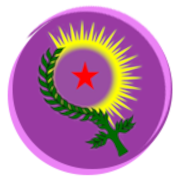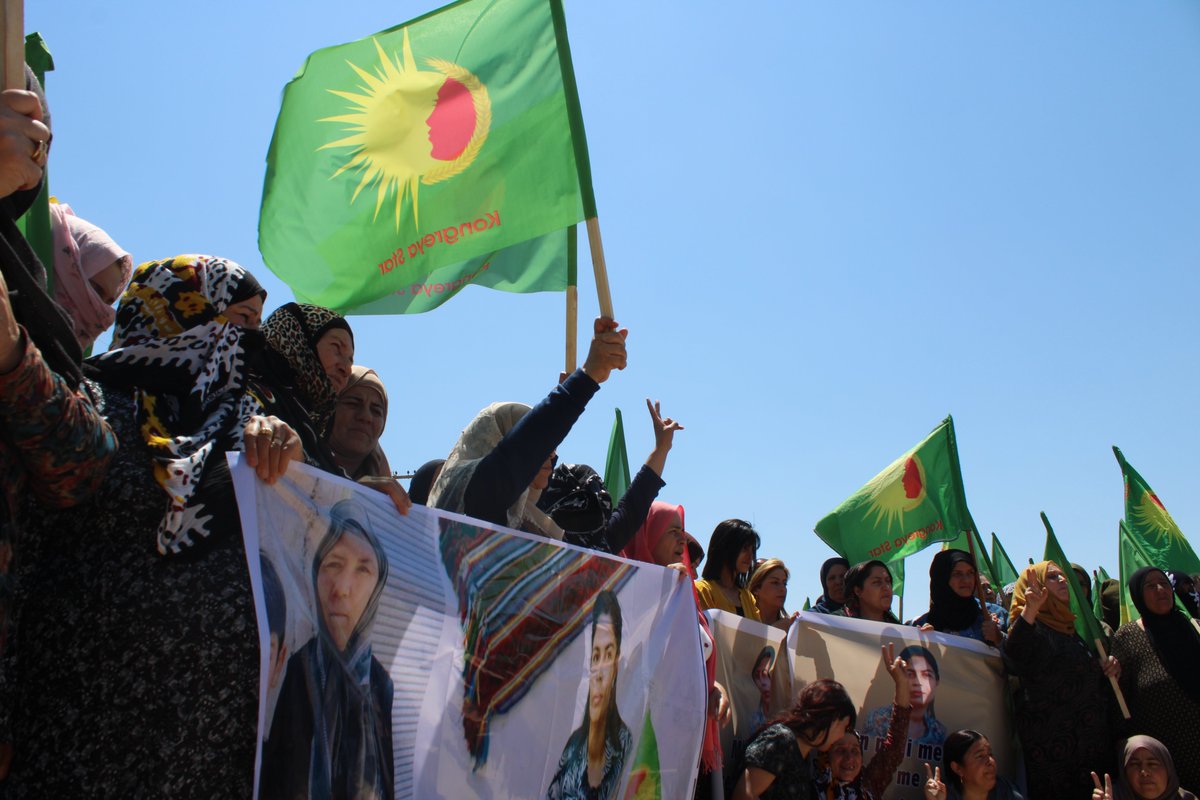Women’s Revolution of Rojava
One of the places where the flag of the Kurdish women’s movement is flying freely is Rojava [Western Kurdistan/Northern Syria]. On July 19, 2012, in Kobanê, the first spark of the Rojava’s women’s revolution, which organized the peoples on the basis of freedom instead of building a new status quo in the war against the ruling Ba’ath regime in Syria, where the wave of revolts against oppressive regimes in the Middle East called the ‘Arab Spring’ spread.
This revolution, marked by women, continues to grow in influence, attracting the attention of all oppressed peoples around the world with the ideas and values it defends. The revolution, which has spread beyond the region of Rojava and is on its way to spread throughout Syria and the Middle East, is today recognized as the women’s revolution in essence all over the world.
The Revolution of Rojava is a women’s revolution because women became the subject of it by leading the struggle against IS, and they also organized against patriarchy, which is widespread in the Middle East and almost all over the world. Women who stood up with the Revolution of Rojava objected to their confinement at home and the roles assigned to them, and took their place in many fields such as politics, economy and education.
Of course, these developments here did not emerge spontaneously. It is the result of the Kurdish freedom struggle in this field and the importance it attaches to the women’s struggle. The fact that today it has gained an international dimension and has taken the region under its influence is in close connection with the recent developments.
With the Revolution of Rojav, the importance given to women in the Kurdish people’s struggle for freedom has gained a new axis. Because this is also the struggle of being free women against the slavery and backwardness imposed on women by the system of capitalist modernity in the face of IS.
The Kobanê and Afrin resistances in front of the eyes of the whole world, the moves to end the gangs that slaughter women, in other words, the war being waged in Rojava and North East Syria as a whole, have become a bridge between the struggle of Kurdish women and women of other peoples. In this way, women have shown what they can achieve through struggle.
Arin Mirkan’s immortality by defending women’s freedom against IS on the hill of Kobanê-Miştenur has brought the fire of resistance to Arab, Turkmen, Armenian and Assyrian women. These women started to walk on the path of the Kurdish women in Kobanê and became partners in their resistance. They came from all over the world and responded to the attacks on Rojava by fighting shoulder to shoulder at the front.
The women’s revolution in Rojava has been a beacon of hope for the world, not only with the military successes and physical fighting power of women in the war, but also by playing a leading role in the reconstruction and organization of society and life with Rêber Apo’s [Abdullah Öcalan] paradigm of democratic nation and democratic modernity, in all areas such as politics, economy, education, health, local councils, etc.
The practice of co-chairmanship has been implemented in all organizational areas of society. In this way, women participate in decision-making at all levels. In political and economic decisions, women have a voice and decision-making power. This practice sets an important example for the development of women’s struggle in the region.
We see that women also take part in military decisions through their own organizations and commands.The military operation against IS in Raqqa was carried out under the command of women and the victory achieved by ending IS is an example of this. This operation was also a move to liberate thousands of Ezidi (Yazidi) Kurdish women who were enslaved by IS.
The ‘Yekîneyên Parastina Jin’ (Women’s Protection Unit, YPJ) was founded in 2012, initially with the participation of Kurdish women only. Today, however, with battalions of women from various ethnic and religious backgrounds, both internationally and locally, it has defeated the jihadist gangs that terrorized the world and targeted women the most, and the YPJ has become the model of women’s militarization with the deepest ideology of women’s liberation, historically and currently.
The Kongra-Star women’s movement, an organized structure in which women fulfill the pioneering role in social construction, realizes the dimensions of re-existence in all areas of life within the framework of democratic modernity with the participation of all women.
Politics, economics, health, education, law, diplomacy, self-defense; women from all walks of life are organizing in all areas that make up a whole society and are realizing the women’s revolution. The women’s project ‘Jinwar’ is one project of them. Women’s cooperatives are being established, and communal work is being carried out on the basis of solidarity.
The women of Rojava are not only fighting against the occupying Turkish state and IS, who want to lock them in medieval darkness, but they are also fighting for their own freedom. While this struggle has led to significant developments, we should not ignore the fact that much more needs to be done. Therefore, rather than being a fait accompli, the women’s revolution should be considered as a struggle that is lived, developed and growing every day. In order to secure the gains made yesterday and to add new ones to them, the women’s liberation struggle must be constantly strengthened and expanded in every field and at every moment. The women in Rojava and North East Syria are based on the principle of continuously growing and developing their organizations on this basis.

